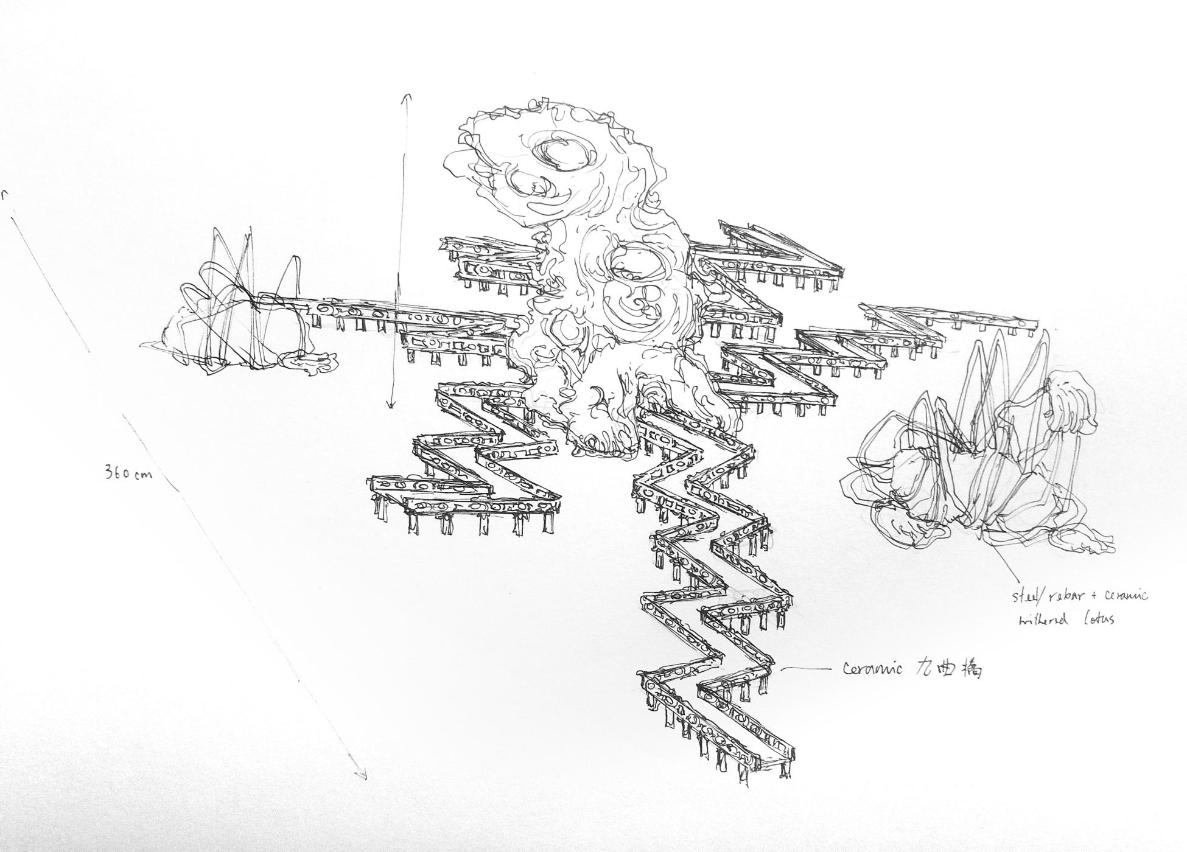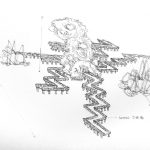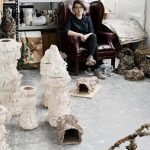 Part of the exhibition proposal sketch
Part of the exhibition proposal sketch
The selected proposal for the “Macao-China Pavilion at the 58th Venice Biennale International Art Exhibition”, organized by the Macao Museum of Art (MAM), under the auspices of the Cultural Affairs Bureau (IC, from the Portuguese acronym), was announced. The exhibition proposal “The Manifesting Shadow” by Lam Sio Man and Heidi Lau was selected to represent Macao to participate in the Biennale to be held in May 2019 in Venice, Italy. The exhibition aims to deconstruct the current simplified “image” of Macao and reveal its intricate cultural identity, hence “manifesting” the “invisible” Macao.
With ceramics being the major art media, the exhibition “The Manifesting Shadow” aims to alter people’s stereotypical impression about Macao and stir the re-imagination of the city and its identity through the mental reconstruction of homeland in memory, introspection on the city’s ruins and inference of paranormal myths. The jury deems the aesthetic discourse of the proposal complete, the retrospection on human and culture therein realistic and the collaboration of the curator and the artist meticulous. The work reflects on the monstrosity embedded in Macao by tracing history, personal memory, religious beliefs, gaming and other entertainment activities. Such monstrosity refers to the diversity of cultures, the mix of various religions, of tradition and modernity and of the reality and the illusion, which not only reveal the hybrid context of Macao in the abstract but also convey the significance of art expressiveness, forms and concepts themselves. The selected proposal is submitted by curator Lam Sio Man and artist Heidi Lau. Lam Sio Man is studying a master degree in Visual Arts Administration at New York University and has curated exhibitions at the Museum of Chinese in America in New York. Heidi Lau obtains a bachelor degree in Fine Arts at New York University, and her artworks were exhibited and collected by museums and art galleries in New York several times.
The open call for submission of proposals aims to select the outstanding work for participating in the “Macao-China Pavilion at the 58th Venice Biennale International Art Exhibition”, hoping to promote Macao’s contemporary art on the international stage. A total of 15 exhibition proposals by 36 local curators and artists in groups were received in this open call. The adjudicating panel was comprised of the Director of Macao Museum of Art, Chan Kai Chon; Chair of Academic Board at Today Art Museum in Beijing, Huang Du; the Director of Museum of Contemporary Art in Taipei, Yuki Pan; the Acting Director of Hong Kong Art School, Chan Yuk Keung; and exhibiting artist at the Macao-China Pavilion at the “57th Venice Biennale International Art Exhibition”, Wong Cheng Pou, who reviewed in the two rigorous selections on 12 and 13 October, and selected the exhibition proposal “The Manifesting Shadow”.
Established in 1895, the “Venice Biennale International Art Exhibition” is the oldest biennale and largest international contemporary art exchange platform. It has since witnessed and presented dramatic political, economic and cultural changes and has attempted to address the problems in each era in its unique perspectives and approaches. This edition of the Biennale in 2019 is themed “May You Live in Interesting Times” and is undoubtedly the transmission of such value. It has been the sixth time that the Macau Museum of Art has participated in the Biennale under the name of “Macao-China” since 2007. This time, the Macau Museum of Art will join the two local young female artists to reveal the manifesting Macao on the world stage.



